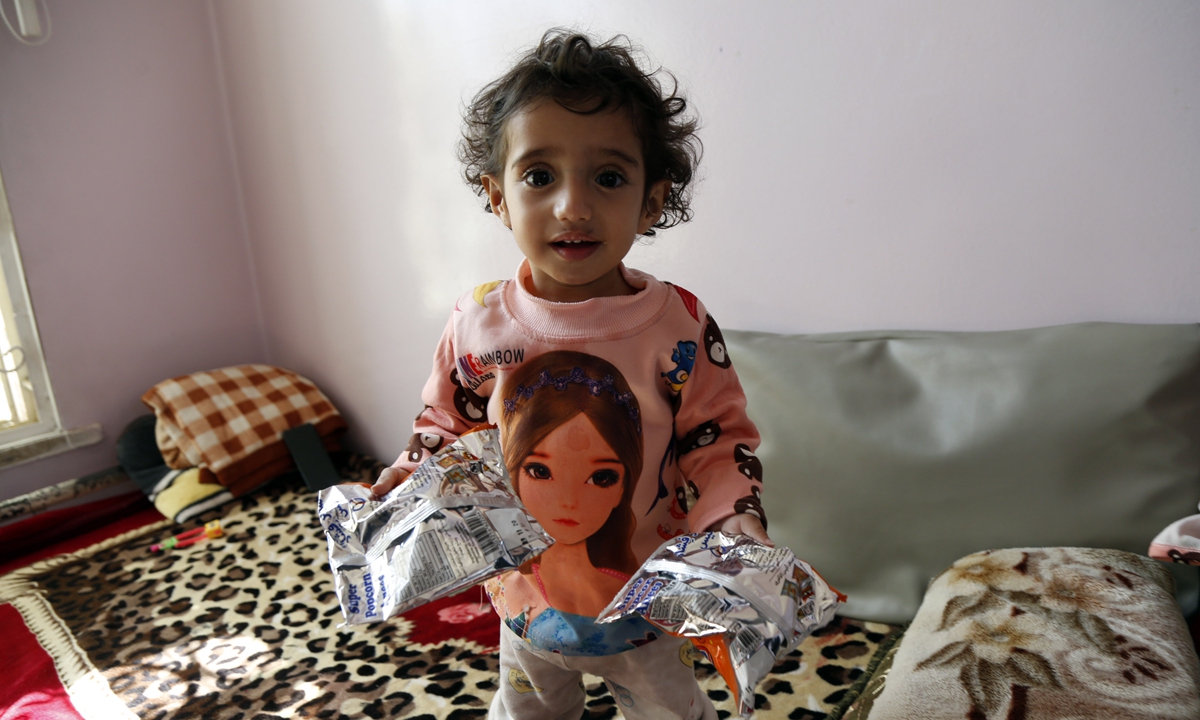Closed schools, surging poverty, forced marriages and depression - after a year of the pandemic, indicators measuring child and adolescent development have all regressed, a setback that heralds lasting stigma for an entire generation, UNICEF warned on Thursday.

A view of Al Sabeen Hospital in Yemeni capital Sanaa as children suffering from malnutrition problems are being treated with limited means, on January 05 in Sanaa, Yemen Photo: VCG
"The number of children who are hungry, isolated, abused, anxious, living in poverty and forced into marriage has increased," Henrietta Fore, executive director of the United Nations International Children's Emergency Fund, said in a statement released exactly one year since the World Health Organization classified COVID-19 as a pandemic.
"Their access to education, socialization and essential services including health, nutrition and protection has decreased. The signs that children will bear the scars of the pandemic for years to come are unmistakable," Fore said in the statement.
Faced with such "devastating" effects, Fore urged for children to be placed "at the heart of recovery efforts," particularly by "prioritizing schools in reopening plans."
UNICEF cited a series of worrying figures in support of Fore's words.
While the pandemic has taken a heavy toll on the elderly, children and adolescents under 20 make up 13 percent of the 71 million coronavirus cases reported in the 107 countries that provided age-specific data.
In developing countries, projections show a 15 percent increase in child poverty.
Six to 7 million more children could suffer from malnourishment in 2020, an increase of 14 percent that could translate to more than 10,000 additional deaths per month, mainly in sub-Saharan Africa as well as South Asia.
For 168 million students around the world, schools have been closed for nearly a year. A third of those students do not have access to online education.
As a result of the shuttered schools and worsening economic situation, the pandemic could lead to the marriage of 10 million children by 2030.
At least one in seven children or adolescents has spent the majority of the past year under lockdown orders, increasing anxiety, depression and isolation.
The coronavirus has also led to the suspension of vaccination campaigns against other diseases - starting with measles - in 26 countries, increasing threats to the health of nonimmunized people.
As of November 2020, refugees and asylum seekers are unable to access COVID-19 related social protection support.




